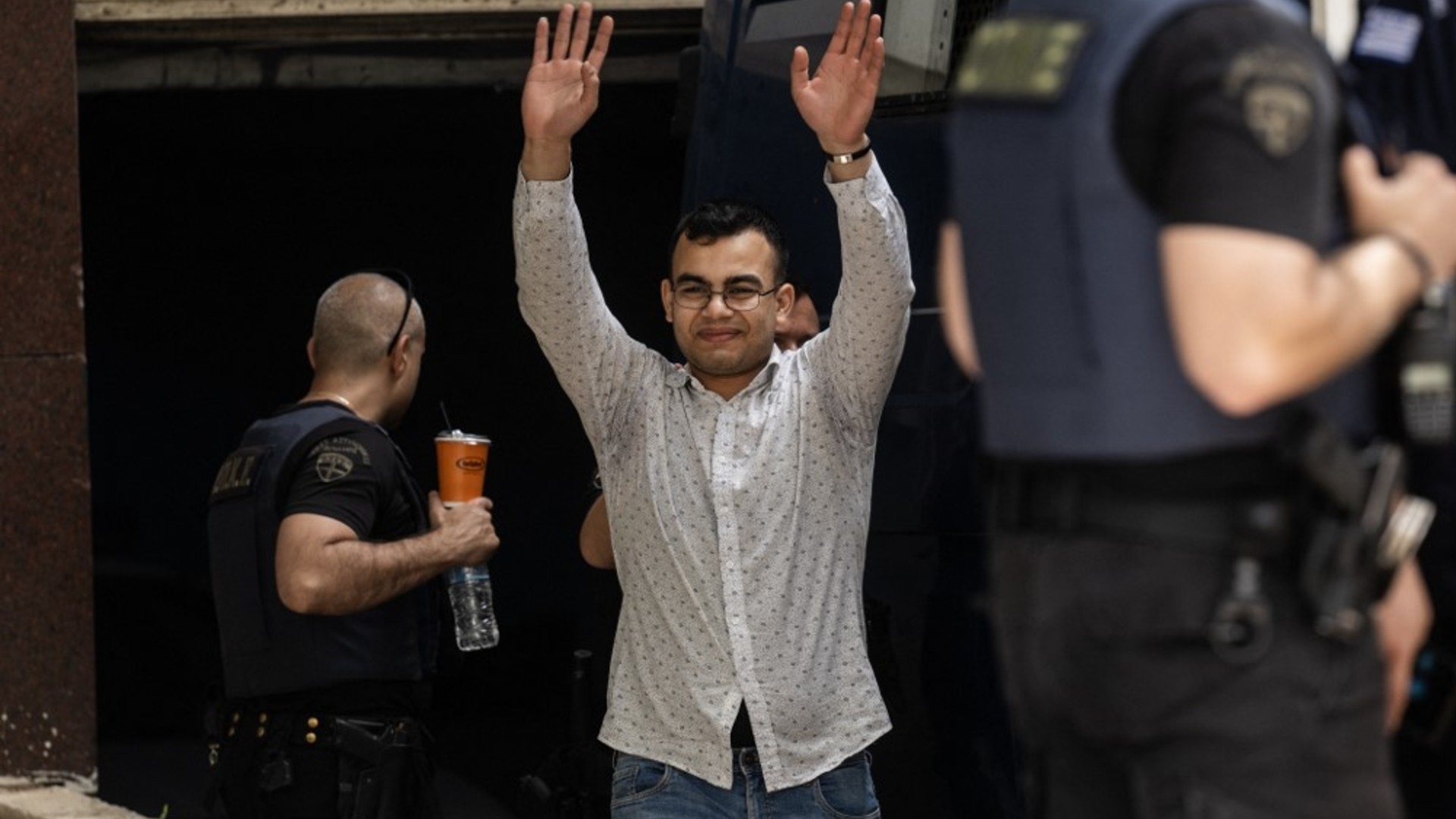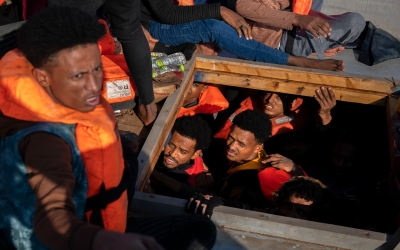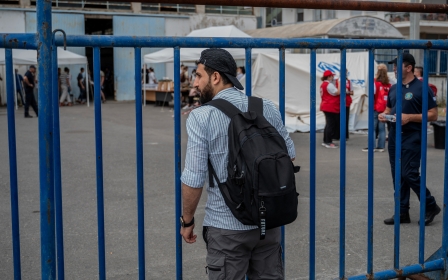Charges dropped against Egyptians in Pylos migrant shipwreck case

All charges have been dropped against nine Egyptian men accused of causing the deadly Pylos shipwreck in June last year. A Greek court ruled it lacked jurisdiction to hear the case, as the boat sank in international waters.
The nine men were all aboard the Adriana, an overcrowded fishing trawler that sank off the coast of Greece's Peloponnese peninsula on 14 June 2023 in one of the deadliest refugee boat wrecks in years.
Only 104 people survived, 82 bodies were recovered and over 500 are still missing. It is estimated that the boat was carrying 750 people.
The defendants, aged between 21 and 41, were arrested within hours of the wreck and have spent almost a year in pre-trial detention.
They went on trial in Kalamata on Tuesday and were charged with membership in a criminal organisation, facilitating illegal entry into Greece and intentionally causing the shipwreck.
New MEE newsletter: Jerusalem Dispatch
Sign up to get the latest insights and analysis on Israel-Palestine, alongside Turkey Unpacked and other MEE newsletters
If convicted, they could have faced life sentences.
Human rights organisations had raised concerns about the integrity of the trial, which they said is based on "incomplete and questionable" evidence.
An official investigation into the Hellenic Coast Guard's alleged role in the disaster is still ongoing.
"With the case dismissed against the Pylos shipwreck survivors, it’s up to the Naval Court to conclude a thorough investigation into any liability of the Greek Coast Guard for the tremendous loss of life," Judith Sunderland, associate director for Human Rights Watch's Europe and Central Asia division, told Middle East Eye.
Coast Guard responsible for wreck
The accusations against the nine men were allegedly based on testimonies from nine Syrian and Pakistani survivors who identified them as performing tasks aboard the vessel, including distributing water and trying to control the crowd.
However, this is directly contradicted by survivor testimonies that allege that the Hellenic Coast Guard precipitated the wreck by attempting to tow the boat.
A report by Forensis, based on 26 survivor testimonies, images of the ship, vessel tracking data and satellite imagery, concluded that the Coast Guard was responsible for the wreck. The report states that the Coast Guard failed to mobilise nearby ships, attempted to tow the boat and did not promptly rescue those thrown overboard.
Another joint report by Amnesty International and Human Rights Watch, based on testimonies from 21 survivors, representatives of the Hellenic Coast Guard, the Greek police, nongovernmental organisations, the United Nations, and international agencies, pointed to several Coast Guard failures that directly contributed to the wreck.
The Coast Guard has consistently denied their responsibility for the disaster.
The country’s naval court subsequently launched a preliminary investigation into the Coast Guard’s role in the disaster, but almost a year later, little progress has been made.
The defendants' solicitors previously told MEE that key evidence and witnesses had been omitted from the investigation, including data from survivors’ mobile phones, which the authorities confiscated and claimed to have lost. The phones were later found in a plastic bag on a Coast Guard vessel but were not examined.
Middle East Eye delivers independent and unrivalled coverage and analysis of the Middle East, North Africa and beyond. To learn more about republishing this content and the associated fees, please fill out this form. More about MEE can be found here.





